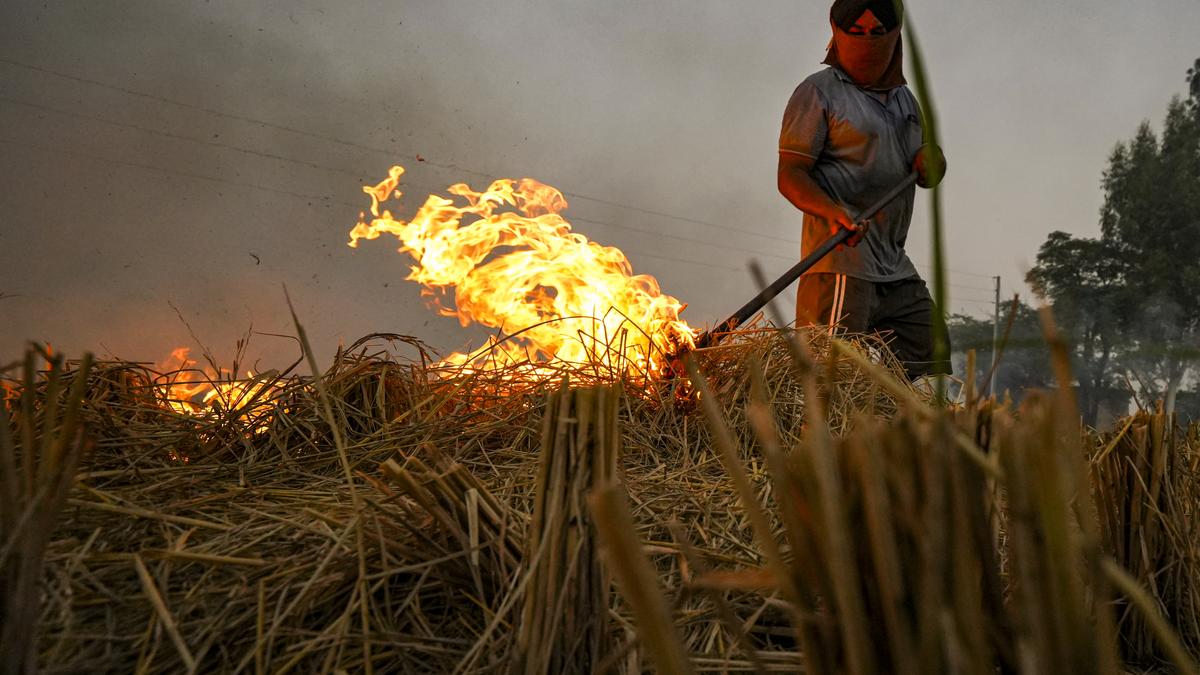
A farmer burning paddy stubble on the outskirts of Amritsar, Punjab.
| Photo Credit: FILE PHOTO
With the paddy harvest season beginning in northern India, the Commission for Air Quality Management in the National Capital Region and Adjoining Areas (CAQM) has stepped up measures to curb stubble burning, one of the key contributors to winter air pollution in the Capital.
In a new order, the CAQM has empowered District Collectors, District Magistrates, and Deputy Commissioners in Punjab, Haryana, Rajasthan, Uttar Pradesh, and Delhi to directly file complaints before judicial magistrates against lax officials. The directive, issued on October 1, warns that nodal officers, supervisory officers, and even Station House Officers can be held accountable if “found negligent in enforcing the anti-pollution measures”.
‘Strict vigil’
A similar order was issued last year as well. “District administrations and State governments are expected to maintain constant and strict vigil,” the order said. An official said the directive is expected to strengthen the fight against stubble burning. The move comes against the backdrop of the Supreme Court recently urging a tougher stance on the practice.
Punjab, where the bulk of the burning takes place, has reported fewer incidents this year. According to data from the Indian Agricultural Research Institute (IARI), the State has recorded 95 incidents so far this harvest season compared with 179 during the same period last year, the lowest in six years. The IARI tracks the harvest season from September 15 to November 30.
Every winter, air pollution in Delhi-NCR worsens due to meteorological conditions, including slower wind speeds and falling temperatures. Paddy stubble burning, which peaks in October and November, coincides with this seasonal deterioration, creating some of the most polluted days of the year. While Punjab remains the main contributor, incidents in Haryana and Uttar Pradesh also contribute to the worsening of air quality.
Published – October 04, 2025 12:55 am IST



